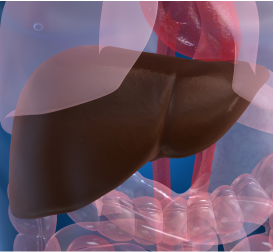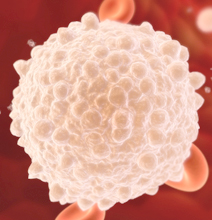Regional Chemotherapy
Colon cancer tends to spread to the liver, while rectal cancer goes to the lungs. Nevertheless, the liver is still the most common place to find metastases.

Approximately 60 to 70% of those who suffer a recurrence of colorectal cancer after surgical removal of the primary tumor will recur in the liver. This means that cancer cells have either escaped the primary site before the operation or stayed behind after it.
These liver metastases can be treated in various ways, including by regional chemotherapy.
This can be done by arterial chemoembolization, which allows delivering a much higher concentration of the chemotherapy drugs to the liver than conventional chemotherapy treatment. At the same time, only a small part of the drug reaches other parts of the body minimizing its side effects.
HOW DOES IT WORK?
In particular cases, the hepatic artery - the main source of blood and nutrients for liver tumors – can be blocked to administer chemotherapeutic drugs locally.
A small pump, implanted under the skin of the abdomen, injects the drugs, even under ambulatory care if necessary. From the hepatic artery, the drugs will pass to the multiple other arteries that cover the liver, while the supply of oxygen and nutrients to the organ is assured by the portal vein.
Oncologists use chemotherapeutic drugs - such as oxaliplatin or irinotecan - after metastatic cancer surgery to kill stray cancer cells and reduce the risk of disease recurrence.
On the other hand, chemotherapeutic drugs are also used to shrink hepatic tumors prior to surgery. This has allowed many patients, previously considered inoperable, to undergo surgery safely, increasing their chances of a cure.
In addition, because hepatic arterial infusion is administered regionally (so locally in the tumor area), this is much less toxic to the body than conventional systemic chemotherapy.




